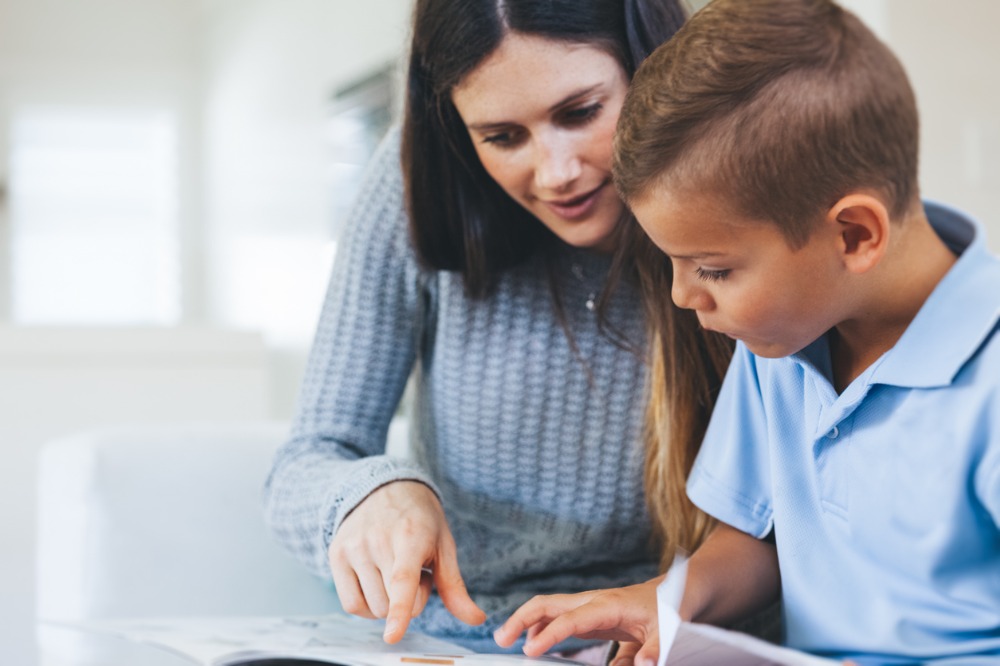
Last week, a nationwide survey found that 98% of Australian teenagers report feeling anxiety or pessimism, and one in five rated their mental health as poor.
While this challenge is certainly not lost on schools, governments and communities who are working hard to turn the tables, a growing body of research shows that intervention strategies and programs that target groups with behavioural indicators can have a profoundly positive impact.
At Tangara School for Girls, mentors and parents meet once a term to contribute their own insights about the student’s progress ensuring that school and homework as one in the best interest of the child.
The school's one-on-one mentoring system, run by the Parents for Education Foundation (PARED), uniquely pairs each student with a staff mentor for biweekly meetings, fostering academic, character, and social development while reducing bullying and offering essential learning and psychological support.
Answering the call for individualised support
Tangara School for Girls principal, Rita Sakr said the genesis of the mentoring program at Tangara School for Girls was influenced by several key factors, reflecting “a commitment to providing a holistic education and fostering a supportive and nurturing environment for students.”
“The program recognises parents as primary educators, aiming to align school and family values for holistic student development,” Sakr told The Educator. “It supports the ‘Education of the Whole Person,’ focusing on academic, personal, and social growth.”
Sakr said the need for individualised support drove the creation of the program, allowing students to receive personalised guidance.
“Strengthening the school-home partnership was crucial, fostering communication and collaboration with parents,” she said. “The program emphasises character education, teaching virtues like integrity and resilience.”
Sakr said addressing mental health is also a big priority, providing a supportive system for stress management and resilience building.
“The program aims to promote academic excellence, setting goals, developing study habits, and encouraging students to achieve their potential,” she said.
“Ultimately, the school's vision for future growth includes creating adaptable support systems for changing student needs, with the mentoring program serving as a foundation for continuous improvement and innovation in student support.”
Creating unity between home and school
When asked about the changes she has observed at the school since the mentoring program was implemented, Sakr noted several positive changes.
“Parent engagement has increased, fostering a stronger school-family partnership,” she said. “Student attendance and punctuality have also improved, and bullying incidents have declined due to mentoring interventions.”
Sakr said enhanced student well-being is evident as mentors identify and address concerns, fostering empowerment and problem-solving skills.
“Greater accountability among students regarding behaviour and responsibilities is apparent, alongside notable character development,” she said.
Sakr said the mentoring program “reinforces virtues and personal excellence”, creating unity between home and school, with parents, teachers, and mentors working collaboratively.
“Overall, the program has significantly enhanced the school environment, ensuring students receive comprehensive support and guidance,” she said.
“These changes demonstrate the program's effectiveness in creating a nurturing environment that supports students' overall growth and success, contributing to their development as well-rounded individuals who excel academically, socially, and personally, aligning with Tangara School's commitment to holistic education.”
Strengthening school-parent collaboration
Another important benefit of the mentoring program, says Sakr, is that it has significantly strengthened school-parent relationships and collaboration.
“Parents receive immediate support from mentors, fostering open communication and ensuring they are informed and involved in their child's education,” she said. “Regular meetings provide holistic feedback on academic progress and personal growth, encouraging parental investment.”
Sakr said mentors prevent students from "falling through the cracks" by monitoring and addressing issues early.
“They serve as primary contacts for both student development and parental support. Mentors align values and expectations between school and home, sharing insights into academic and social development,” she said.
“Emphasising holistic growth, the program aligns with parents' desire for well-rounded children, providing strategies for home support. Collaborative goal setting involves parents, fostering shared responsibility.”
Sakr said mentors offer practical parenting advice, empowering parents in their roles.
“The mentoring system builds trust and mutual respect, enhancing school-home collaboration. Tailored approaches address individual needs, empowering students and ensuring successful outcomes through combined efforts of parents, mentors, and teachers.”
Strengthening ‘Education of the Whole Person’
Sakr said mentoring program emphasises personalised mentoring for academic and personal excellence by recognising individual needs, mentors tailor support, encouraging growth and development beyond a ‘one size fits all’ approach.
“Mentors serve as positive role models, empowering students to become confident leaders and change agents,” she said.
“The program integrates virtues and values education, emphasising empathy, integrity, and resilience in mentoring sessions. Parent involvement is enhanced through information evenings and workshops, fostering a cohesive support system.”
Sakr said a focus on mental health and well-being includes training mentors in mental health first aid and promoting a supportive school culture.
“Mentors encourage a growth mindset, lifelong learning, and community service, reinforcing social responsibility. The program's vision includes expanding mentoring to provide emotional support and counselling services, promoting holistic student development,” she said.
“This comprehensive approach strengthens Tangara School's culture of ‘Education of the Whole Person,’ preparing students for success in academics, character, and community engagement.”


